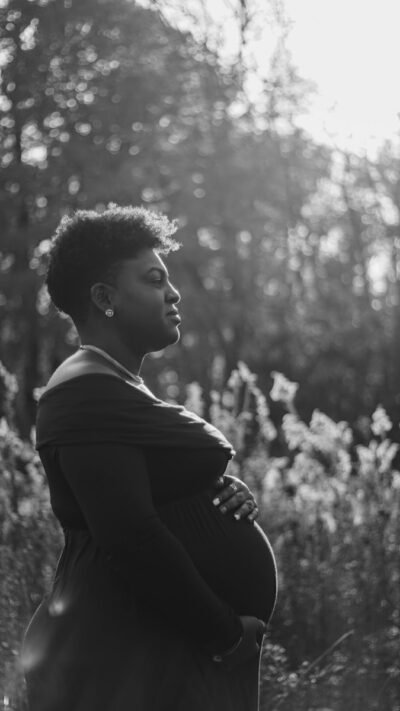Please pay close attention to this woman's story and her words. ‘The day I was reduced to a Black birthing body.’ A doctor reflects on pr
Please pay close attention to this woman’s story and her words.
‘The day I was reduced to a Black birthing body.’ A doctor reflects on pregnancy by Alisha Liggett, M.D.
I’ve shared the story around delivering my child and why I stand against the phrase “birthing body”…how I wasn’t heard.
On the day before my child’s arrival into this world-my son’s great-great-great grandmother, his great-great grandmother, and his great aunt– were all gathered at his paternal grandmother‘s home for her birthday.
That is the only reason that he is here today. Divine intervention. They confirmed that I was indeed in labor and had been for some time. Every bit of the time that I had been calling the doctor’s office but was ignored. It was all so typical of what happens to Black pregnant women, of what happens to Black patients.
I’ve shared how in recent years Black women, including me, have been scolded by fellow feminists and women’s advocates who try to force terminology and policies that dishonor privacy, safety, and dignity upon women.
Because:
“It is not kind”
“It does not matter”
“It is not a big deal”
“Women who complain are “hateful”
“Women who complain are “race baiting”
The Problem: Black Women Are Dying During and After Pregnancy
In the United States, Black women are far more likely to die from pregnancy and childbirth than any other group of women.
In 2023, Black women died at a rate of 50.3 deaths per 100,000 live births — more than three times higher than white women (14.5 per 100,000). 【cdc.gov†source】
When you look at deaths that happen weeks or even months after giving birth, the numbers are still alarming: Black women experienced about 22 deaths per 100,000 births between 6 weeks and one year postpartum — again, far higher than other groups. 【jamanetwork.com†source】
Why This Happens
Many of these deaths are preventable. Research shows that doctors and healthcare systems often don’t listen to Black women’s concerns — dismissing pain, ignoring symptoms, or downplaying warning signs like shortness of breath, swelling, or headaches.
It’s not only about access to healthcare, but about the quality of care. Studies confirm that racial bias, stereotypes, and systemic neglect all play a role in why Black women’s voices are silenced in medical settings.
And not just Dr. Liggett’s story, all patient stories. Social media has made people too comfortable offering opinions non-empathetic takes on the health stories of others. Stories are shared for awareness. It is so unnecessary to say evil things about people suffering health conditions they did not ask for. People are sharing and uplifting stories about what happens to Black patients because it. has. not. changed.
Progressing Forward
When a Black woman says: “Something is wrong” during pregnancy or after birth — she must be heard, believed, and treated quickly. Lives depend on it.
As for the term “birthing body”, the medical community has not yet mastered how to listen to patients. No medical degree is even required for this. I would ask that they use their energy to work on that before approaching changing words and phrases that only make some women feel more dehumanized than they already make us feel.
*For the women who have no problem being called that term, divine speed.
